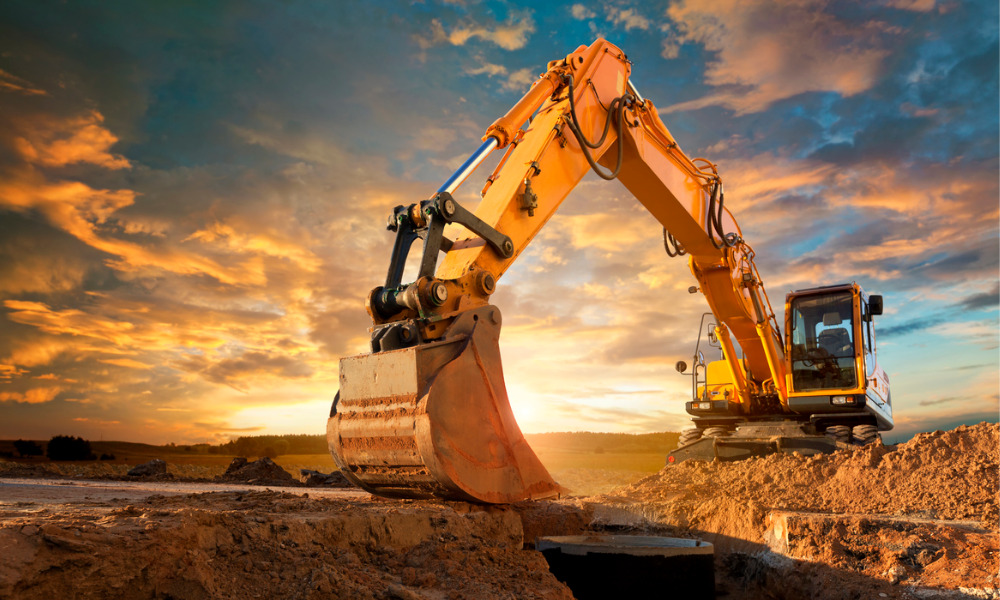Forklift Rental Providers for Industrial and Commercial Usage
Wiki Article
Renting Out Vs. Purchasing Construction Equipment: Making the Right Selection for Your Task
When beginning on a building and construction project, one of the essential decisions that predict stakeholders and managers deal with is whether to purchase or rent building and construction equipment. The decision pivots on different factors such as price factors to consider, task period, tools maintenance, flexibility, threat, and scalability monitoring.Expense Considerations
When assessing the financial facet of acquiring versus renting construction equipment, the upfront prices and long-term costs must be very carefully considered. Leasing tools commonly requires lower first payments compared to acquiring, making it an appealing choice for temporary projects or service providers with spending plan restrictions. Renting gets rid of the demand for big funding outlays and reduces the financial threat linked with equipment possession, such as maintenance and depreciation costs. Nonetheless, over time, continuously renting out equipment can accumulate greater expenses than purchasing, specifically for extended jobs.On the various other hand, purchasing construction equipment involves higher in advance costs but can cause long-term financial savings, especially for regular users or long-lasting jobs. Having devices provides adaptability, ease, and the capacity for resale value once the job is finished. Additionally, possessing equipment enables customization and knowledge with certain machinery, possibly raising efficiency and efficiency on-site. Ultimately, the decision in between leasing and acquiring building devices hinges on the project's duration, regularity of use, spending plan considerations, and long-lasting financial goals.
Job Duration

Conversely, for long-term tasks or continuous building and construction job, purchasing tools can be the much more economical option. Purchasing devices can bring about cost savings in the future, especially if the devices will certainly be often made use of. In addition, owning tools supplies a sense of control over its schedule and enables modification to fit specific project requirements.

Tools Upkeep
Given the vital duty project period plays in determining the most cost-efficient approach in between buying and leasing construction tools, the focus currently shifts in the direction of taking a look at the necessary element of devices maintenance. On the other hand, possessing tools needs a proactive technique to maintenance to stop break downs, guarantee safety and security, and extend the tools's life-span. Eventually, a well-maintained building devices fleet, whether rented or possessed, is necessary for the effective and reliable completion of building and construction projects.Adaptability and Scalability
In the realm of building and construction equipment management, the facet of flexibility and scalability holds considerable significance for task effectiveness and source usage. Deciding to rent building and construction equipment gives a high level of versatility as it enables the quick modification of equipment types and quantities based on the evolving requirements of a job. Renting out enables service providers to access a large range of rental company near me specific devices that may be needed for particular tasks without the long-term dedication of possession. This adaptability is especially useful for projects with varying demands or uncertain durations (heavy equipment rental).Moreover, scalability, one more important factor, is naturally linked to flexibility. Renting building and construction equipment supplies the benefit of easily scaling operations up or down as project demands fluctuate. Specialists can swiftly trade or include devices to match the job's altering demands without the restrictions of owning properties that may come to be underutilized or obsolete. This ability to scale resources effectively can cause expense savings and boosted task timelines, making renting a desirable alternative for tasks needing flexibility and responsive source allotment.
Threat Administration
Effective threat monitoring in building tools procedures is paramount to guaranteeing project success and mitigating possible financial losses. Building and construction projects inherently entail various threats, such as tools failures, crashes, and job delays, which can substantially impact the job timeline and budget plan. By meticulously taking into consideration the dangers related to owning or renting building and construction devices, job managers can make informed decisions to minimize these potential threats.Renting building and construction tools can supply a level of risk reduction by transferring the duty of repair and maintenance to the rental business. This can lower the monetary worry on the project owner in situation of unforeseen equipment failures (construction equipment rentals). Furthermore, renting out provides the flexibility to access customized devices for certain job stages, minimizing the threat of possessing underutilized machinery
On the various other hand, having construction devices provides a sense of control over its use and upkeep. Nevertheless, this likewise indicates birthing the complete duty for repairs, upkeep costs, and depreciation, boosting the economic risks associated with devices ownership. Mindful risk analysis and factor to consider of factors such as task duration, equipment utilization, and maintenance requirements are vital in identifying one of the most appropriate choice for effective risk monitoring in construction projects.
Verdict
To conclude, when choosing between getting and leasing building devices, it is very important to take into consideration cost, task period, tools maintenance, scalability, risk, and flexibility administration. Each element plays a crucial duty in establishing the most ideal choice for the job at hand. By thoroughly reviewing these aspects, task managers can make an enlightened choice that lines up with their budget plan, timeline, and general project goals.
Report this wiki page